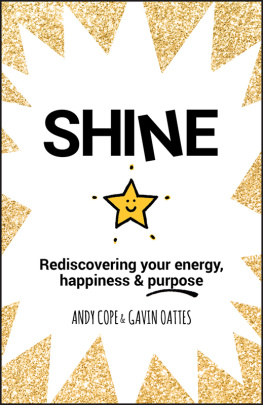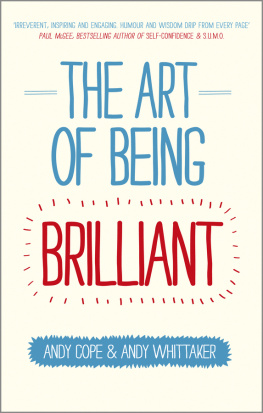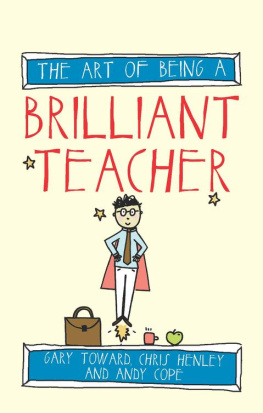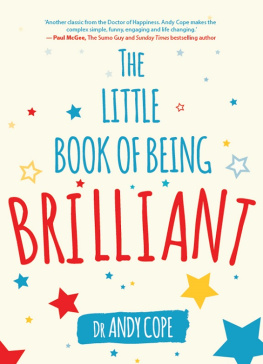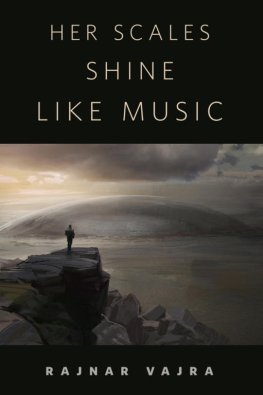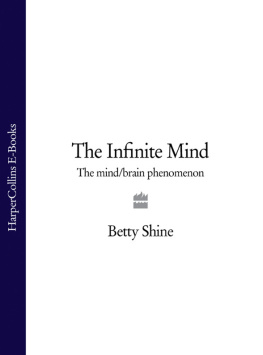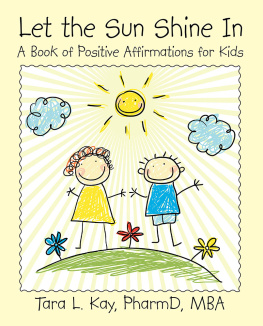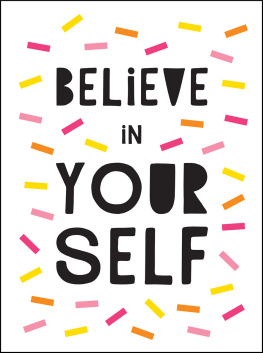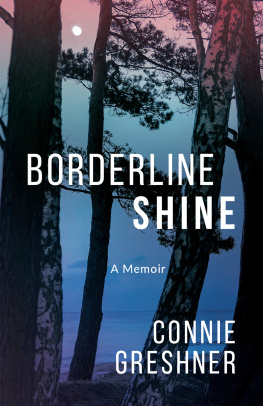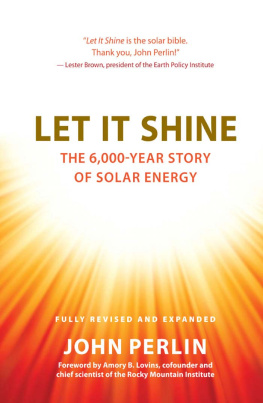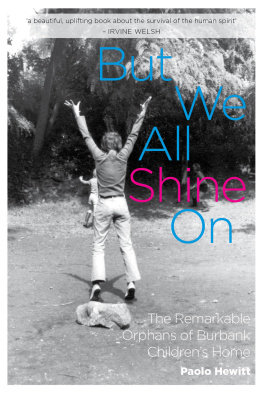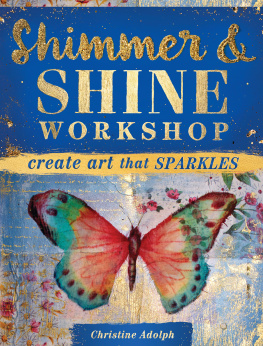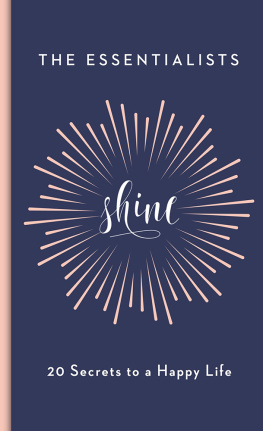
The bit before the actual beginning
Never trust a man who, when left alone with a tea cosy, doesnt try it on.
Billy Connolly
An Englishman, a Scotsman and an Irishman walked into a bar. The barman looked them up and down and said, Is this some sort of joke?
All gags started like that in the 1970s and 80s. They were hilarious, until we found out that they were actually lazy, stereotypical, racial slurs. Who knew? Alternative comedy brushed these tired olde worlde jokes aside, so we had to come up with something different.
Which is fine by us because nobody tells jokes any more. Its all about stories, and our story didnt start like that. There was no Irishman. And no bar. There was an Englishman and a Scotsman, but they met in a caf at St Andrews. They had a cup of tea, a bit of a natter and left it at that.
That doesnt work as a gag (not even an alternative one) and is not even vaguely interesting.
But what follows is. Because, you see, the Englishman and Scotsman kept in touch and when the time was right, they joined forces to write a book. This book, as it happens.
So what exactly is this book?
This book, dear reader, is the best self-help book ever written. By Gav and Andy, that is. Whether its actually the best ever, I guess the Amazon reviews will be the judge of that. Hand on heart, our aim at the outset was to write the best damned book the self-help shelves have ever seen.
The Scotsman was excited. You see, hes never written a book before, so had no idea what pain and suffering was down the line. The gnarled old Englishmans an old hand. He knew, so his excitement was tinged with scepticism. The best book ever was a nice idea (it was the Scotsmans idea), but really? The Englishman smiled politely, like we do.
Anyhow, the Englishman and Scotsman came up with a plan and went their separate ways. Gav to Edinburgh, Andy to Derby, and they started penning stuff. Well typing it, but you know what I mean.
The Englishman was struggling a bit. He was beginning to wonder how many times he could get away with saying exactly the same thing that hed said in his previous five books, when ping, an email arrived. It was the Scotsman. Will be sending you some ideas later today.
That was it.
Ten minutes later; ping, another email from Edinburgh, entitled A wee bit of magic, and this time there was an attachment.
I sighed. A wee bit of magic? Wee? The Scotsman is writing it in chuffing Scottish!
I was about to open the attachment when there were two more pings; Silly Stress and Mary Poppins had arrived, each with an attachment.
The Scotsman was flying.
I opened A wee bit of magic and had a quick look. In a previous life Gav had been a teacher, plus Ive heard him deliver a keynote and Id read his back catalogue of blogs, so I knew he was okay with words. But hes unpublished.
A wee bit of magic blew me away. In two short pages, I laughed and cried.
Beginners luck?
I clicked on Silly Stress. Same! Mary Poppins raised the already sky-high self-help bar to Dick Fosbury levels. It was flopping amazing; a proper sucker punch of writing that softened me up with some fun stuff before delivering a killer blow that took the wind out of me. It was the kind of writing that I had always wanted to do.
The best self-help book the world had ever seen? What if the Scotsman was being serious?
While the Englishman was reading, six more emails had winged their way down the A1/M18/M1 information superhighway, each as good as the last.
And so here we are. Its clear that the Scotsman probably didnt need the Englishman at all. Or maybe he did? Because the seemingly random bunch of stories needed a narrative. There are times when the reader needs a breather, and thats where I come in with a bit of science or a new angle, or (as is very often the case but will go totally unnoticed) some proper punctuation. Apostrophes? Helloooo! I wonder how the Scotsman ever qualified as a teacher. So, for the purists, I promise good grammar and no emojis. Thinking aloud, is it a generational thing putting three exclamation marks to make a really big point?!?!?!
Anyhow, theres a lesson for you already in the comparison thing that Ive been doing. Gav talks about changing your focus away from being the best in the world towards being the best for the world. Its a subtle play on words that has very unsubtle connotations. It dovetails rather snugly with Simon Sineks notion that finite players play to beat the people around them whereas infinite players play to be better than themselves. Applying it to life means its not about Twitter followers, FB likes, book sales, salary earned or how funny you are. Its not about producing better work than your colleagues, or outdoing anyone. One-upmanship gets you disliked.
Matching up to the Scotsmans levels of hilarity is beyond me, so I swapped finite for infinite thinking. Whether I can write books that are as amazing as the ones my heroes write becomes a moot point. Ive changed my focus. The greatest personal development writers of all time are not my competition. The Scotsman is not my competition.
I am my competition. Not just in writing, but in everything.
And you are yours.
In which case, joy doesnt come from comparison, but from advancement. For me, its about producing better work than I did last time. Im very very proud of my previous books. That means I have to up my game to be very very very proud of this one.
Best of all, its actually quite a relief to twig that I dont have to match up against the best in the world. I only have to match up to being a little bit better than me from last time. It helps enormously to have the flying Scotsman on board because he will help me be better.
And if I can help him too, were cool.
So there you go, your first lesson and we havent even got to Chapter 1 yet. Progression rather than comparison.
And so to the actual book itself
This edition first published 2018
2018 Andy Cope and Gavin Oattes
Registered office
John Wiley & Sons Ltd, The Atrium, Southern Gate, Chichester, West Sussex, PO19 8SQ, United Kingdom
For details of our global editorial offices, for customer services and for information about how to apply for permission to reuse the copyright material in this book please see our website at www.wiley.com.
All rights reserved. No part of this publication may be reproduced, stored in a retrieval system, or transmitted, in any form or by any means, electronic, mechanical, photocopying, recording or otherwise, except as permitted by the UK Copyright, Designs and Patents Act 1988, without the prior permission of the publisher.
Wiley publishes in a variety of print and electronic formats and by print-on-demand. Some material included with standard print versions of this book may not be included in e-books or in print-on-demand. If this book refers to media such as a CD or DVD that is not included in the version you purchased, you may download this material at http://booksupport.wiley.com. For more information about Wiley products, visit www.wiley.com.
Designations used by companies to distinguish their products are often claimed as trademarks. All brand names and product names used in this book are trade names, service marks, trademarks or registered trademarks of their respective owners. The publisher is not associated with any product or vendor mentioned in this book.
Limit of Liability/Disclaimer of Warranty: While the publisher and author have used their best efforts in preparing this book, they make no representations or warranties with respect to the accuracy or completeness of the contents of this book and specifically disclaim any implied warranties of merchantability or fitness for a particular purpose. It is sold on the understanding that the publisher is not engaged in rendering professional services and neither the publisher nor the author shall be liable for damages arising herefrom. If professional advice or other expert assistance is required, the services of a competent professional should be sought.
Next page
